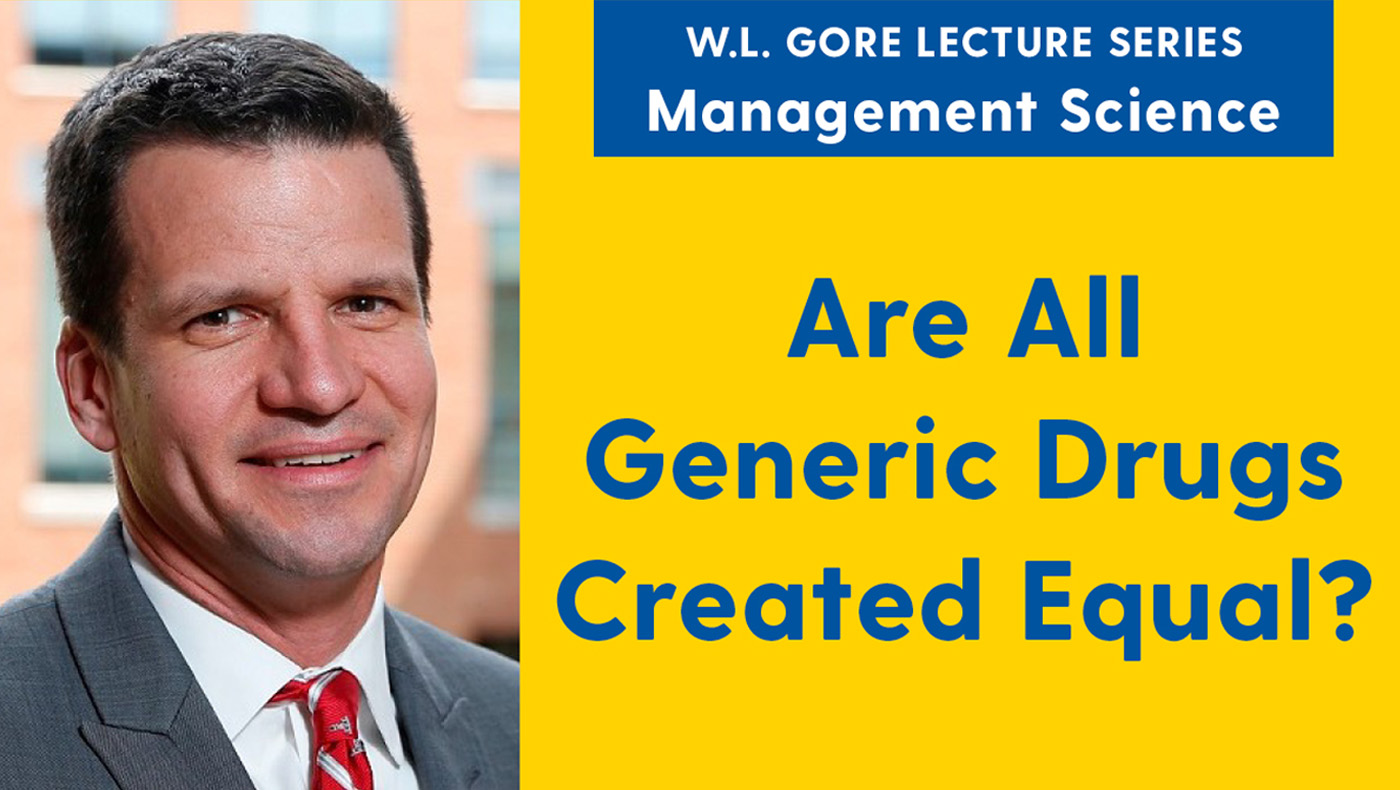For most of us, generic drugs are a much more affordable option, and the term “generic” suggests for many people that all versions are more or less the same.
If that’s your perception, you might want to hear more from researcher John Gray, professor of operations and business analytics at The Ohio State University, who has uncovered information casting doubt on that assumption.
Gray will speak about his research Oct. 26 at the FinTech Innovation Hub on the University of Delaware’s STAR Campus, as part of the annual W.L. Gore Lecture Series in Management Science. The event is hosted by the Alfred Lerner College of Business and Economics.
The lecture series, which is sponsored by an endowment from the Gore family, features experts who apply probability, statistics and experimental design to decision making. Their work has applications in academia, business, government, engineering and medicine.
Gray is an expert in operations and supply chains, and serves as a part-time consultant for the White House on pharmaceutical supply chains.
This Thursday, Gray will talk about whether it’s true that all generic drugs are fully interchangeable, whether there are differences in production and supply chain decisions that make a meaningful difference in quality, and possible improvements to the industry.
“The [generic drug] industry is pretty opaque, and it’s difficult for consumers or even providers to really know [the manufacturer], or even where their drug is made. It’s often just listed as ‘distributed by or ‘made for’ on labeling,” Gray said. Combined with the assurance of the FDA, “most people don’t really think about it. And so the research is… questioning whether that’s correct.”
Gray was quite familiar with the pharmaceutical industry before beginning his generic drug research, having worked in an FDA-regulated Procter & Gamble facility for eight years. He also looked into risks in outsourced and offshore drug manufacturing as part of his doctoral studies.
Seeing sometimes major differences in manufacturing quality at various sites, both personally and as part of that research, helped spark Gray’s interest in generic drugs. He also points to the book “Bottle of Lies” by investigative journalist Katherine Eban as further anecdotal evidence that validates his ongoing work. Eban’s book deals with fraud and cutting corners among some generic drug manufacturers.
The FDA won’t release information on drug manufacturers, but a graduate student working with Gray hit on a way to figure out, in many cases, which drugs come from where. It was enough to do a large-scale analysis, and Gray will discuss the results in his presentation.
This isn’t just an issue of low-quality products coming from developing nations. Violations of good drug manufacturing practices happen in both developing economies and in advanced economies like the U.S. and Europe, Gray said.
“Generic drugs are treated like corn. They are ‘lowest price wins the bid,’ and everyone treats them as equal. And you can imagine what that might lead to in the manufacturing, supply chain decision making, if the only way you’re going to get business is being the cheapest,” Gray said.
The impact for those who buy pharmaceutical drugs can be noteworthy. Supply shortages for various drugs can result when a supplier gets in trouble.
“Beyond that, I believe that there’s variation in drug quality sufficient to have hidden or difficult-to-measure public health issues,” Gray said.
Don’t expect a despairing talk, though — Gray will also discuss emerging research that tests recommendations for policy solutions, including ways to create a more transparent industry and changes to the inspection process.
If you go:
When: Thursday, Oct. 26, 6-8 p.m.
Where: FinTech Building, STAR Campus, 591 Collaboration Way, Newark, DE 19713




